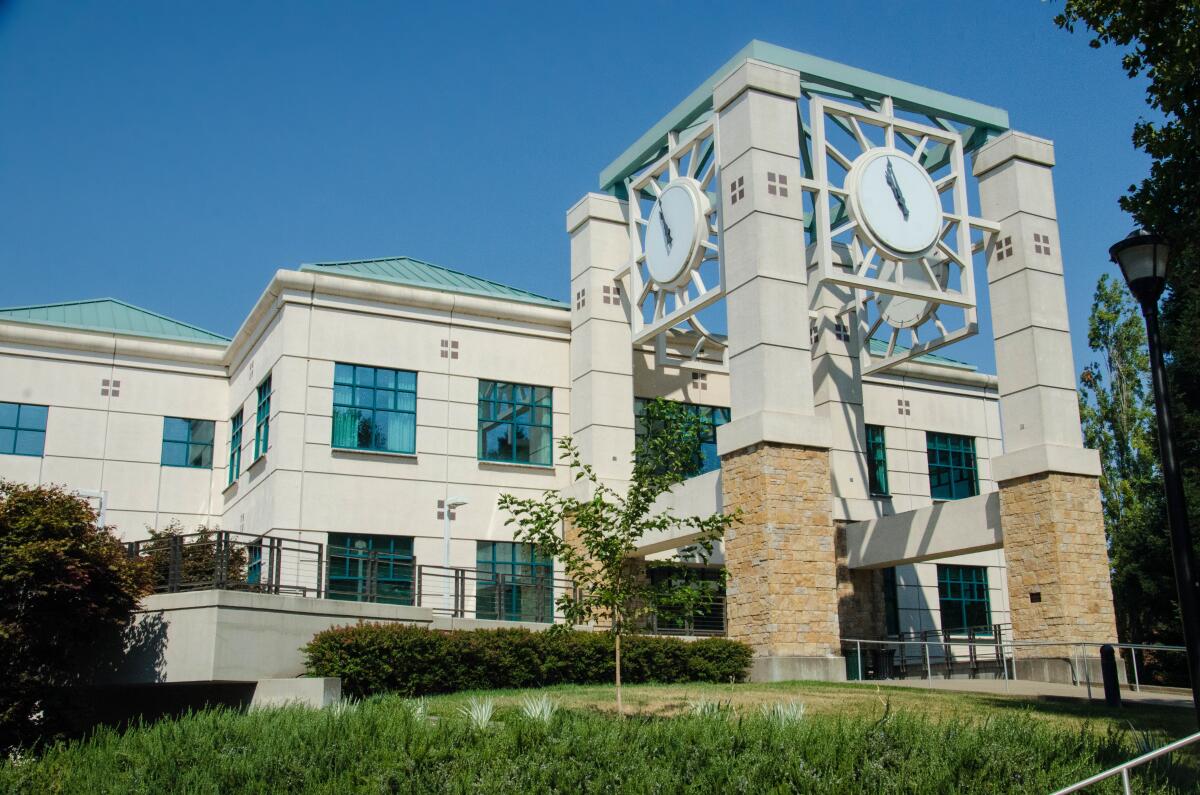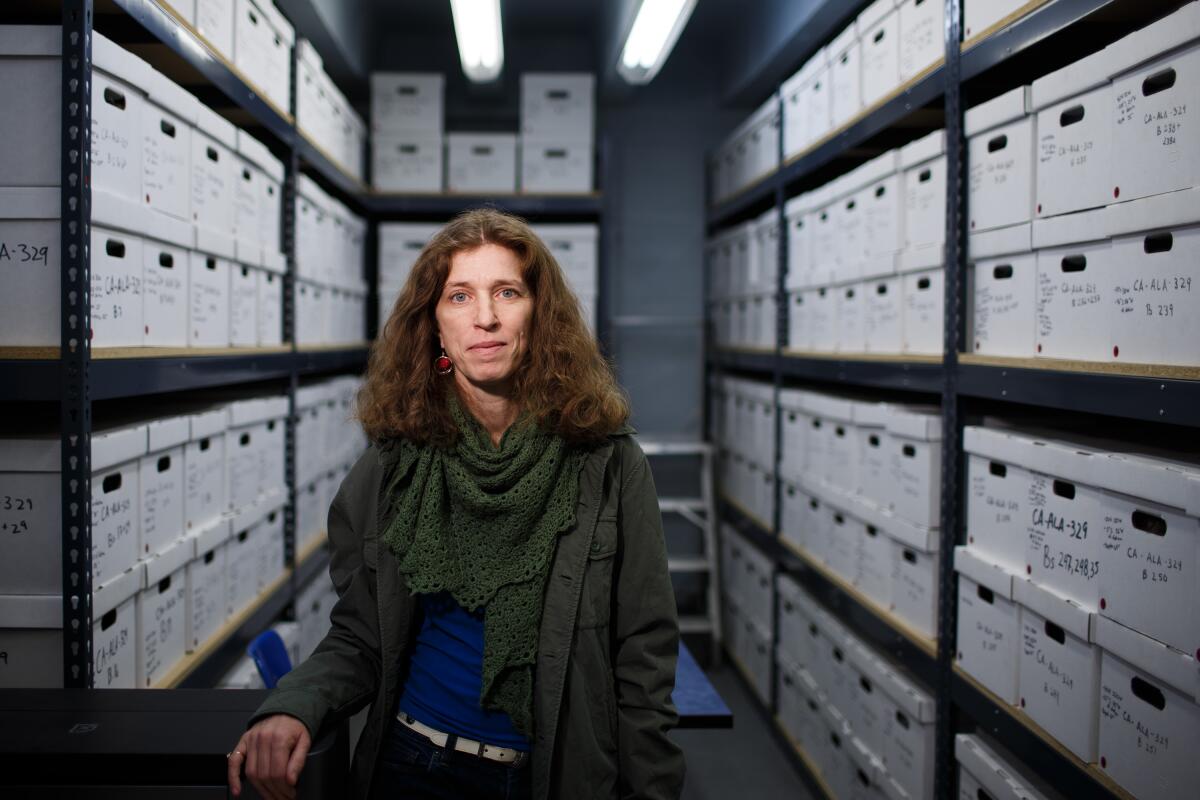CSU campuses have largely failed to repatriate Native remains and artifacts, auditor finds

- Share via
California State University campuses across the state have largely failed to return human remains and cultural artifacts to Native tribes, despite a 1990 law requiring them to do so, a state auditor found.
More than half of the 21 CSU campuses with Native collections have failed to repatriate any artifacts or remains to tribes, according to a report released Thursday by California State Auditor Grant Parks. Two campuses that did return things did not follow the legal requirements, the auditor said.
Overall, the CSU system has repatriated just 6% of its collections to tribes, the report found.
The audit was partially prompted by a 2021 incident at San Jose State, where an anthropology professor posed with a Native skull from the school’s exhibit while not wearing gloves. The professor, Elizabeth Weiss, had just returned to campus after the COVID-19 lockdown and tweeted a photo of herself with the skull, saying, “So happy to be back with some old friends,” according to the Mercury News.

The audit found that 12 of the 21 CSU campuses with collections have failed to even review the extent of their inventory, which they were supposed to do by 1995, according to the national Native American Graves Protection and Repatriation Act.
Kerri Malloy, a San Jose State University professor of Native American and Ingenious Studies, said that CSU has failed to provide “dedicated funding, personnel and prioritization” to bring the school system into compliance with the law.
“While many of the CSU campuses have adopted land acknowledgments recognizing the first caretakers of land which their campuses occupy, they have lagged in transforming those statements into meaningful actions,” Malloy said.
Sonoma State University has the largest collection, with more than 185,000 pieces.
The CSU system did not dispute the findings in the audit.
“We recognize that there is much work still to be done. The CSU is committed to laying the crucial infrastructure that will accomplish repatriation in a timely manner and demonstrate our deep respect, regard and alliance with Native American communities,” said Interim Chancellor Jolene Koester in a statement.
More to Read
Sign up for Essential California
The most important California stories and recommendations in your inbox every morning.
You may occasionally receive promotional content from the Los Angeles Times.














